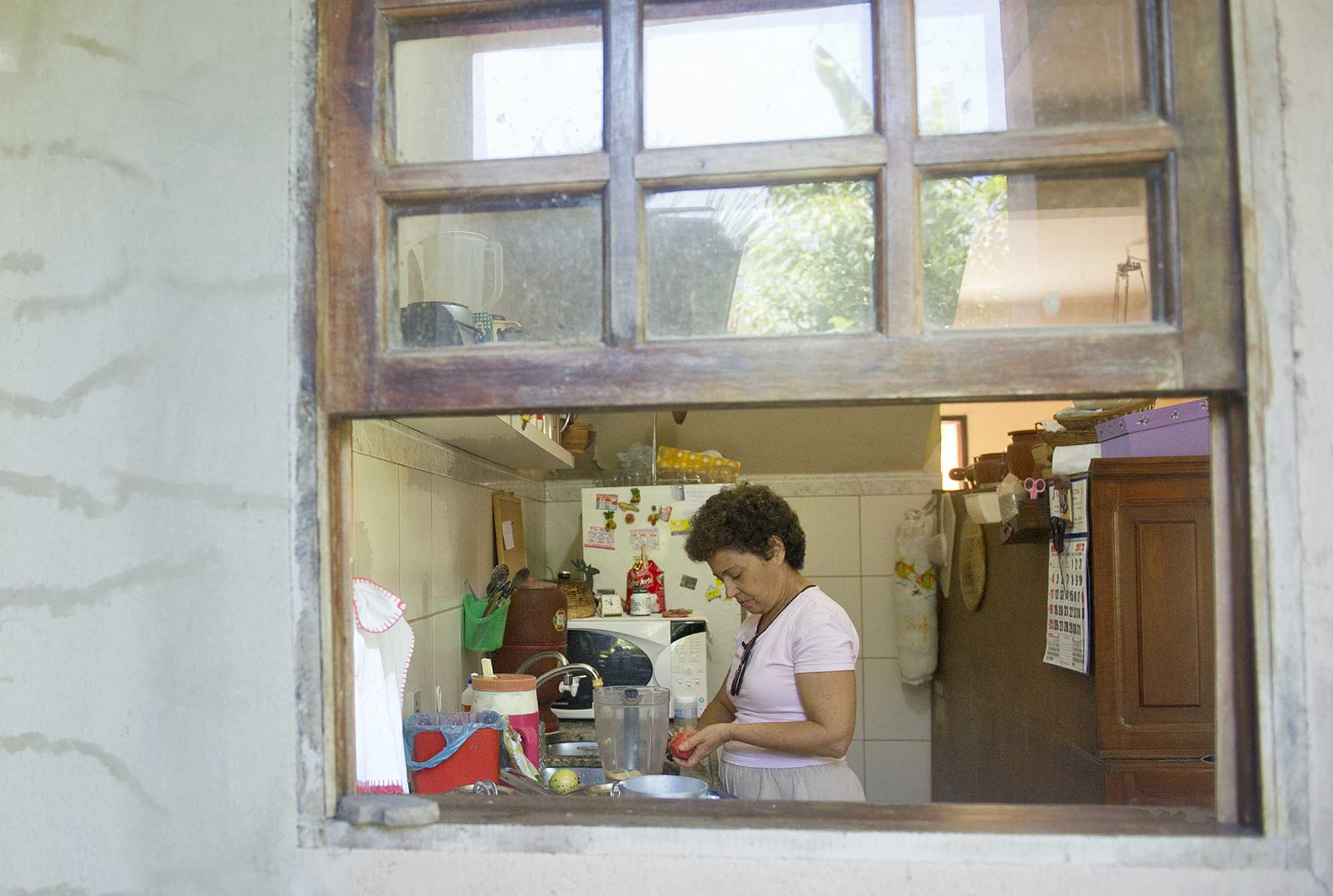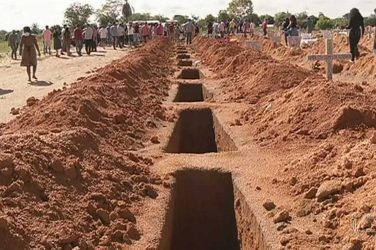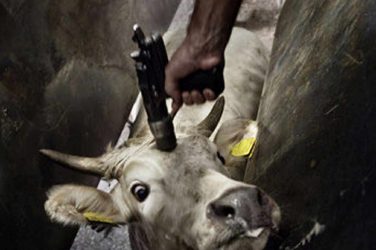This report from Vila Autódromo is the first in a series by favela residents that will highlight the impact of the coronavirus pandemic on daily life in their communities. The series is made possible through a partnership with the Behner Stiefel Center for Brazilian Studies at San Diego State University.
Only 20 families – less than 4% of the original community that once resided here – is all that remains of the Vila Autódromo favela, located in the West Zone of Rio. The community was the target of violent ongoing removals in the period leading up to the 2016 Olympics, motivated by real estate speculation and the exchange of favors between politicians and businessmen.
Here in the community, we already live in unparalleled isolation – we are not provided with public services beyond garbage collection three times a week. With the quarantine, we had to go further into isolation and take extra precautions while trying to follow the guidelines disseminated by communication outlets.
All of us, not only here, but in all of Brazil, were terrified with the news that came from China and Italy, countries which have had among the biggest losses in terms of deaths and where people have sometimes had to choose who will live and who will die.
Given this, we could not just sit with our arms crossed. We needed to adjust as quickly as possible, especially knowing the precariousness of our health system. At this moment, this is what haunts us most: the fear of ending up in the same situation as these countries.
As we are a small group here in the favela of Vila Autódromo, we were able to quickly organize. Solidarity has always been the rule. Even before, when we were close to 700 families. We have always been very supportive of each other, of course, some more than others, and today it is no different.
One of our major concerns, in addition to staying alive in the midst of this pandemic, is, certainly, sustaining ourselves. The bills keep coming. We are all concerned with our food supply, with our spending.
Last week we saw a light at the end of the tunnel with the approval of a 600 reais (US$ 115) emergency basic income payment for informal workers for three months. Informal workers represent about 40% of the workers in all of Brazil. This is a considerable amount: we are talking about 38 million people.
However, we also know that the government’s greatest concern is not with the most vulnerable population. We are treated like garbage. Those in the government only care about our cheap and exploited labor. The government is only concerned with the economic crisis that the pandemic might bring and with the possible consequences for who is in power – with the greater likelihood of impeachment.
In this moment of crisis, a basic income stipend is of greatest necessity, but our government, as always, insists on giving only the leftovers, crumbs, to the poor. This amount of 600 reais is very little for those who have no other income. Families will have to choose between eating and paying the bills. As the pain of hunger is greater, those who survive the pandemic will find themselves in debt.
We are following media reporting in favelas, and it’s very sad to see that many favelas do not have water. If the main guidelines of doctors, infectious disease specialists, health agencies, and the World Health Organization, are all centered around hygiene, how are favelas supposed to follow these guidelines without water?
One governor after another comes to power and then falls out of power, but no government agency resolves the problem of water supply or the precarity of basic sanitation; problems that are closely intertwined.
Before the removal, we had many problems with the water supply in Vila Autódromo. Our water was clandestine, but we did not want it to be that way: at that time, through our residents’ association, we asked several times for water regularization with the CEDAE public water utility, but were never attended to. In the new Vila Autódromo, we witnessed the regularization of service. Now, we pay for water monthly and, thank God, our water has not been lacking.
Another major concern is with the orientation of medical authorities to maintain a distance of at least one meter and a half between people. Despite this, we still see crowded BRT (bus rapid transit) lines every day. Why don’t they increase the number of buses as they do during Rock in Rio?
It’s an event that increases the number of people in circulation on the bus line by 100,000 people, but during which the buses are not crowded, as they have one bus come right after the other. Where are these buses? Why, in such a dangerous moment of a pandemic like this, that has already killed more than 70,000 people and has infected more than 1.2 million around the world, do they not put extra buses into circulation so as to avoid contact and contagion between people?
In this period of quarantine, I feel that we are living in a shadow of this ghost called coronavirus. Everyone is frightened by the possibility that the worst could happen to anyone at any time. In our community, no actions have been taken by the government. Among us residents exists the action of solidarity: we help each other in whatever way we can.
Our day-to-day consists of everyone being inside their homes. We talk to each other less than normal. We know very well that if we become sick we will be left to our own luck. We thank God that, as of yet, we have no suspected cases of coronavirus.
This is because we are taking care of each other to keep it this way, and because through our resistance and struggle, we have managed to obtain adequate sanitation, water, and paving.
We have no doubt that if the hard-won services we have achieved here became a reality in all of the favelas of Brazil and the world, the risk of contagion would decrease.
Luiz Cláudio da Silva was born on November 14, 1962 in the favela of Rocinha, the son of a single mother who worked as a house cleaner. He studied in public schools, and grew up like any child in the periphery. Married and father to a daughter, he moved to the Vila Autódromo community in 1994, where he still lives today.
He is a physical education teacher and activist. He participated with his neighbors and their supporters in Vila Autódromo’s resistance to the 2016 Rio Olympics. He is one of the organizers of the Evictions Museum and continues as a volunteer member of the museum, receiving visitors from Brazil and all over the world.
This article appeared originally in RioOnWatch https://www.rioonwatch.org/
——————–
Rocinha Favela Issues Manifesto to Combat Covid-19
The following text is from a letter sent to Rio de Janeiro Governor, Wilson Witzel, by the Rocinha Residents’ Association and signed by representatives of many different favelas.
Proposals from Rio de Janeiro’s Favelas for the Governor of the State of Rio de Janeiro, Dr. Wilson Witzel as a Contribution to Combating the Pandemic Caused by Covid19/Coronavirus.
Considering the data estimates by the Brazilian Institute of Geography and Statistics (IBGE), the state of Rio de Janeiro reached 17.8 million inhabitants in 2018 with a total of over 1000 favelas spread over different municipalities.
With 765 favelas, the city of Rio de Janeiro’s favela population corresponds to nearly 2 million inhabitants in a municipality of 6 million people. In other words, 30% of the Carioca population lives in favelas.
17 proposals from the favelas for the Governor:
01 – Basic food baskets for all favela residents, especially families with children and elderly.
02 – Distribution of basic hygiene kits, including hand sanitizer and protective equipment, to families living in favelas.
03 – Guaranteed water distribution from state utility CEDAE in all favelas with priority attention to areas where there are water shortages.
04 – Resumption of Community Health Agents (Agentes Comunitários de Saúde) in the favelas where the state government provides basic health services.
05 – Guaranteed protection for all health workers in favelas with PPE (Personal Protective Equipment) kits; masks, gloves, and alcohol gel, and buy stock so there aren’t shortages at critical moments.
06 – Guaranteed attention for severe cases among favela residents by increasing the number of beds in the private and public networks as well as renting empty hotel (e.g. Hotel Intercontinental), motel, and guest rooms and as a last resort, even cruise ships. All regulated by the public authorities and in accordance with the need to combat coronavirus.
07 – Immediate suspension of all evictions, judicial or extrajudicial, in favelas.
08 – Guaranteed social rent support and an increase in the number of beneficiaries, clearing the current deficit immediately.
09 – Ban, indefinitely, evictions due to unpaid rent in the favelas.
10 – Exemption from electricity payments for all favelas indefinitely and that the services of Light S. A. are a priority in favelas for the next six months or as long as the pandemic lasts.
11 – Ban cutting energy, water and communications (telephone, Internet, etc.) connections for the next six months with subsequent negotiations concerning values owed, to be paid in installments over the course of 12 months. In case of disobedience on the part of utility companies, enforcement of a fine referring to the percentage of the monthly bill, which will be returned to the affected consumer and to strengthen the State Health budget.
12 – Temporary work suspension for all pregnant workers, nursing mothers and working mothers with children up to the age of 12 who live in favelas, with a guarantee of paid leave and job retention.
13 – Temporary work suspension for all public and private sector workers that belong to high-risk groups (those with high blood pressure, the elderly, those with diabetes, those suffering from chronic respiratory diseases) who live in favelas with paid leave and guaranteed job retention.
14 – Guaranteed housing assistance, food assistance, and basic income for informal market workers, the self-employed, small business owners/freelancers (MEI), domestic workers, day workers, and caretakers who live in favelas.
15 – Establish control mechanisms for the prices of basic food baskets and hygiene and health products located in favelas as well as easy access to essential products.
16 – Transparency and widespread disclosure of data and information about the health situation of the favela population provided by State bodies, the Oswaldo Cruz Foundation (Fiocruz), and municipalities.
17 – Postponement of state tax payments for establishments set up in favelas, such as small businesses, MEIs, and local merchants for a period of 6 months with future negotiations concerning repayments in installments over the course of 12 months without interest. Request that Brazil’s Federal Revenue postpone or defer the small and medium business tax (Sistema Integrado de Pagamento de Impostos e Contribuições das Microempresas e Empresas de Pequeno Porte, SIMPLES).
5 Suggestions for the Governor
Question: Where will the resources come from to pay for these services for the favelas so as to truly ensure our ability to combat the pandemic and attend to the most vulnerable population?
Reply: 01 – Suspend interest payments and debt repayments with banks for 6 months.
02 – Postpone payments on property by large land owners rented or leased by the state for 6 months.
03 – Defend, together with the federal government, the suspension of all the limits and sanctions of the Law of Fiscal Responsibility (LRF) to allow the State to buy more necessary inputs for the Secretary of Health for combating the pandemic or declare a state of emergency in the state of Rio de Janeiro, suspending the limits and sanctions of the LRF.
04 – Increase expenditures with health policies by means of extraordinary additional credit or credit operations in accordance with the need to combat the pandemic in the state and especially in the favelas with priority attention to the most vulnerable.
05 – Join forces to repeal the 95th Constitutional Amendment (Emenda Constitucional 95) which institutes a ceiling on public spending, thus assuring more resources for the Unified Health System (SUS) in the fight against coronavirus.
Sincerely,
The Residents
Association of Rocinha and other favelas














